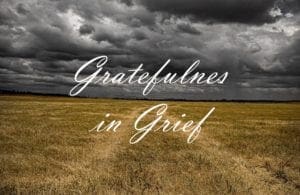 I was reading a book lately that discussed a research project previously unknown to me called the Adverse Childhood Experiences Study (ACE). The study asked participants, who were mostly from middle and upper middle class families, whether they had experienced any of ten specific types of childhood trauma, including such events as divorce, substance abuse, and others, all before their 18th birthday. The study found that as the number of traumatic instances increase, so does the risk of disease, social, and emotional problems later in life. Tracking the study’s participants into adulthood, participants who suffered four or more of the study’s ten adverse childhood experiences were 300 percent more likely to have lung disease, 200 percent more likely to deal with hepatitis, and 400 percent more likely to struggle with depression, suicidal thoughts, and substance abuse than others. I found it disturbing and surprising that about four and a half of these experiences were a very real part of my own childhood.
I was reading a book lately that discussed a research project previously unknown to me called the Adverse Childhood Experiences Study (ACE). The study asked participants, who were mostly from middle and upper middle class families, whether they had experienced any of ten specific types of childhood trauma, including such events as divorce, substance abuse, and others, all before their 18th birthday. The study found that as the number of traumatic instances increase, so does the risk of disease, social, and emotional problems later in life. Tracking the study’s participants into adulthood, participants who suffered four or more of the study’s ten adverse childhood experiences were 300 percent more likely to have lung disease, 200 percent more likely to deal with hepatitis, and 400 percent more likely to struggle with depression, suicidal thoughts, and substance abuse than others. I found it disturbing and surprising that about four and a half of these experiences were a very real part of my own childhood.
I’m not a stranger to grief, whether my own, or walking alongside people I love within this school family: victims of disease, death, depression, suicide, divorce, job loss, struggles with wayward children, and many other instances of pain and suffering. I don’t often ask “why” anymore; that’s a question I’ve found to be frustrating and mostly futile. Just as God’s tremendous blessings of living in a Genesis 1 world fall on the righteous and the unrighteous alike, so does the sadness and tragedy of Genesis 3. But, there is a deeper story here, a tale of blessings infinitely more profound than simple pain evasion, a fierce and unspeakable goodness from God’s loving hand greater than anything we could ever imagine, if only we are open to it.
Being grateful for pain, sadness, and grief isn’t holy, it’s masochistic. It’s possible to feel gratefulness for the pain in the midst of it, but that’s supernatural and extremely rare. God doesn’t expect us to seek after grief, or enjoy it or normally even be grateful for it when it comes. It is inevitable and tragic, an exquisitely raw reminder that we live in a world where things have gone really, really badly, a world that is not our home and to which we should never get too accustomed. What God does give us in the midst of that pain and grief is joy. Anyone who knows Jesus and has been in pain knows how, paradoxically and miraculously, grief activates joy, somehow enabling and heightening it, and allowing us to simultaneously feel both the deep chasm of grief and the heights that true intimacy and nearness with God, true trust and reliance upon Him for our heart’s beating and our lungs’ breath, always brings.
It doesn’t seem possible to feel both things simultaneously. I once had a school parent whose child had recently died share with me that, as horrible and tragic as his child’s death was, if it hadn’t happened he would not have been able to see how much God loved him through the outpouring of kindness and grace from the people around him, which led to gratefulness. That is absolutely, beautifully crazy, and it’s impossible without the Cross, the empty tomb, and the blood that was shed to effectuate it.
While no one can feel gratefulness for tragedy, this absurd yet completely real joy, the fact that the inevitable pain doesn’t end us yet unleashes something even more powerful, is a cause for rejoicing, for being grateful. In this sense, we can feel gratefulness through grief.
And, over time, enduring and negotiating grief’s twisted, circuitous path brings forth fruit the likes of which can’t be otherwise borne. Those who I admire the most, whose character runs deep and is rooted like oak, have most often endured great tragedy, and have realized its fruit. They have found a way to be grateful to He who yielded the fruit in their lives.
There’s another component to the ACE, something called the Resilience Score. These are 14 life circumstances or experiences that, if true, tend to protect most people with four or more ACEs from developing the negative outcomes discussed above. These included belief that one’s father and mother loved them, other family members and non-family adults who believed in them, and having people to talk to. As I reviewed the list, I realized that all 14 life circumstances tending to provide resilience for children through deep difficulties were true in my childhood.
Grief and tragedy are a part of all our lives, yet God loves, and He gives, He protects and He nurtures, and He sets us apart and bears fruit and gives us salvation, and He provides hope and a future and a tomorrow where there will be no more grief or pain. We can be deeply profoundly, sad, and we should; but, how can we also not be grateful?
Leave a Reply